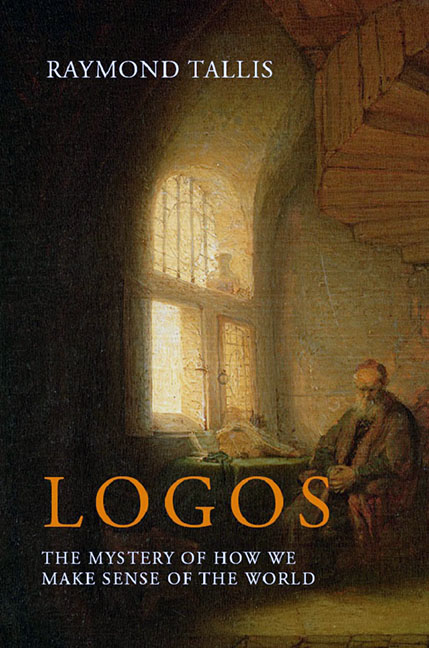Book contents
- Frontmatter
- Dedication
- Contents
- Acknowledgements
- Preface
- Overture
- 1 Seeing the sense-making animal
- 2 Logos: a brief backward glance
- 3 Deflating the mystery 1: putting the world inside the mind
- 4 Deflating the mystery 2: logos as bio-logos
- 5 The escape from subjectivity
- 6 Thatter: knowledge
- 7 Senselessness at the heart of sense
- 8 Towards a complete comprehension of the world?
- Coda
- Notes
- References
- Index
Overture
Published online by Cambridge University Press: 09 August 2023
- Frontmatter
- Dedication
- Contents
- Acknowledgements
- Preface
- Overture
- 1 Seeing the sense-making animal
- 2 Logos: a brief backward glance
- 3 Deflating the mystery 1: putting the world inside the mind
- 4 Deflating the mystery 2: logos as bio-logos
- 5 The escape from subjectivity
- 6 Thatter: knowledge
- 7 Senselessness at the heart of sense
- 8 Towards a complete comprehension of the world?
- Coda
- Notes
- References
- Index
Summary
The greatest mysteries are those we are most likely to overlook, because they are the ground on which we stand when we puzzle over things that surprise us. Chief among these is the very fact – though “fact” is hopelessly inadequate – that the world makes sense to us. As Einstein observed, “the eternal mystery of the world is its comprehensibility”.
A couple of decades earlier Einstein believed he had come close to fulfilling the Pythagorean dream of discovering the mathematical structure of the natural world – of space, time, and the entities occupying or taking place in them – and rendered the material universe transparent to thought. His euphoria was short-lived. Quantum mechanics – a seemingly unintelligible but immensely powerful way of describing the physical world and an incompatible complement of general relativity – came to occupy more and more explanatory space. Nevertheless, Einstein's surprise, and delight, his wonder, remain valid: even the partial intelligibility of the world is mystery enough. The conflict between these two spectacularly successful theories did not make their theoretical and practical potency any less astonishing.
That the world makes sense and we make sense of the world and of ourselves in the world whose givens impose a kind of sense on us is a many-layered miracle. Even those who do notice it – artists, theologians, philosophers, scientists – do so only intermittently. Typically, it is the (local) failure of sense that provokes us into thought. Otherwise we are too complicit in the necessary assumptions of common sense, paying sufficient attention to get by but not enough to see the extraordinary stuff out of which its fabric is made. We rarely wake to the miracle of our wakefulness and the possibility of waking out of it to some more illuminated state.
Of course, if we did not make moment-to-moment sense of what was going on around us, there would be no “us”. Inhabiting an entirely unintelligible world in which nothing could be understood, anticipated, or acted upon with reliable consequences, would be incompatible with inhabiting.
But there is no “of course” even about this. That human existence requires a more or less intelligible world simply moves the mystery on.
- Type
- Chapter
- Information
- LogosThe Mystery of How We Make Sense of the World, pp. 1 - 6Publisher: Agenda PublishingPrint publication year: 2018



